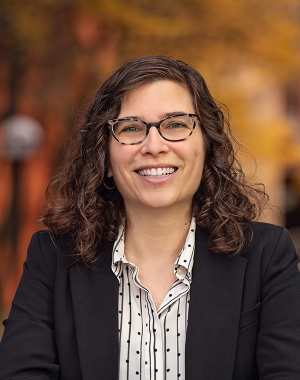
Many of the research projects housed at the Science, Technology and Public Policy program (STPP) in the Ford School focus on climate issues for a simple reason, explains Managing Director Molly Kleinman. "None of this technology operates without electricity. We are all living through the effects of climate change. It is shaping our daily lives, and the work we do has the power to move us in the right direction or the wrong direction."
STPP has pioneered a new approach using interdisciplinary research and historical perspectives to anticipate the implications of emerging technologies with Technology Assessment Projects (TAP)—recently profiled in the Public Interest Technology University Network (PIT-UN) newsletter.
TAP research uses an analogical case study approach to analyze the social, economic, ethical, equity, and political dimensions of emerging technologies. To date, STPP's research has generated recommendations to develop better technology policies on facial recognition technologies in K-12 schools, vaccine hesitancy, and large language models.
“There’s this argument of ‘the technology is so new, we can’t possibly regulate or govern it, we just have to wait and see what happens,’” Kleinman says, pointing to the example of social media. “Then, by the time we’re ready to create or enforce policy, they say ‘it’s too late and we just have to learn to live with whatever the consequences are.’”
Read the full case study and STPP's 3 keys for successful interdisciplinary research here.
Check out recent TAP publications and STPP's Community Partnerships Playbook:
- TAP’s report on facial recognition in schools, which was cited in a New York State ban on using the technology in public schools.
- TAP’s current project, Advanced Nuclear Energy Technology in a Carbon-Neutral Energy Future.
The Public Interest Technology University Network is a partnership between the Ford Foundation, Hewlett Foundation, New America, and 21 colleges and universities dedicated to building the nascent field of public interest technology and growing a new generation of civic-minded technologists. The University of Michigan is a charter member, with the Ford School of Public Policy's Science, Technology, and Public Policy Program serving as a central hub for connecting the many activities and initiatives across campus that are building the field.


